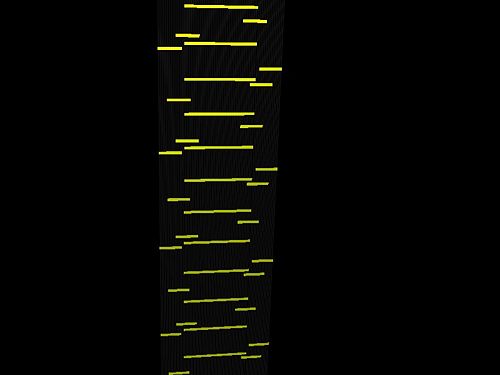RibbonSplicing: Difference between revisions
No edit summary |
No edit summary |
||
| (One intermediate revision by the same user not shown) | |||
| Line 9: | Line 9: | ||
[Cover Img] | [Cover Img] | ||
</div> | </div> | ||
</td> | </td> | ||
<td align="left" valign="top"> | <td align="left" valign="top"> | ||
| Line 52: | Line 52: | ||
[[Image:Ribbon_tests.odt]] Early ribbon test by Edwards | [[Image:Ribbon_tests.odt]] Early ribbon test by Edwards | ||
==Ongoing Work== | |||
{| border="1" style="background:transparent;" | |||
|- | |||
|width="450pt"|'''[[RibbonSplicing1|Title:Open for Use:]] ''' | |||
|width="450pt"| | |||
*Lead: Place Name Here | |||
*E-mail: Place E-mail Here | |||
*Focus: Write a brief line or two on what the page is to work on. This is so other might step up to help. | |||
|} | |||
{| border="1" style="background:transparent;" | |||
|- | |||
|width="450pt"|'''[[RibbonSplicing2|Title:Open for Use:]] ''' | |||
|width="450pt"| | |||
*Lead: Place Name Here | |||
*E-mail: Place E-mail Here | |||
*Focus: Write a brief line or two on what the page is to work on. This is so other might step up to help. | |||
|} | |||
<issues/> | <issues/> | ||
Latest revision as of 21:34, 3 August 2008
| Title: Ribbon Splicing | ||
|
[Cover Img] |
About:
|
Tags:
|
Ribbon Splicing

Building the elevator economically relies on being able to use the elevator to build itself. If we try to launch the entire 1400+ tons for a first small elevator to GEO (or LEO as has been proposed) the cost of the launches runs between $9B and $90B. In addition, there is the cost and complexity of on-orbit construction and the schedule for hundreds of launches. This may be possible with innovative work but we are baselining the construction for launching of the first 40 tons of ribbon and matching counterweight and then sending up climbers to enlarge it. This baseline scenario requires splicing new ribbon to the existing material. The new ribbon is spliced along side the existing ribbon with the interconnects extending over the new and part of the old ribbon. The attachment must be strong and permanent and done at high speed. This arrangement can be seen in the image at right though not to scale.
What needs to get done is a demonstration of the splicing. The basic ribbon design can be used at this point. The baseline scenario calls for tape sandwiches that are put down but there may be better solutions from the textile industry.
Specific Work
- Definition of the factors influencing the splicing viability and final performance of ribbon
- Rate of splicing
- Tension during splicing
- Dimensions of ribbon segments
- Spacing of interconnects to optimize overlap (3x spacing if attachment interconnect overlaps the prior three added ribbons for example)
- Immediate gripping, UV hardened, cured or ???
- FEA model of attached segments in comparison to original ribbon.
- Experimental demonstration of splicing and test of resulting ribbon
File:Splicing write up.odt Early and partially obsolete work by Edwards
File:Ribbon tests.odt Early ribbon test by Edwards
Ongoing Work
| Title:Open for Use: |
|
| Title:Open for Use: |
|
<issues/>